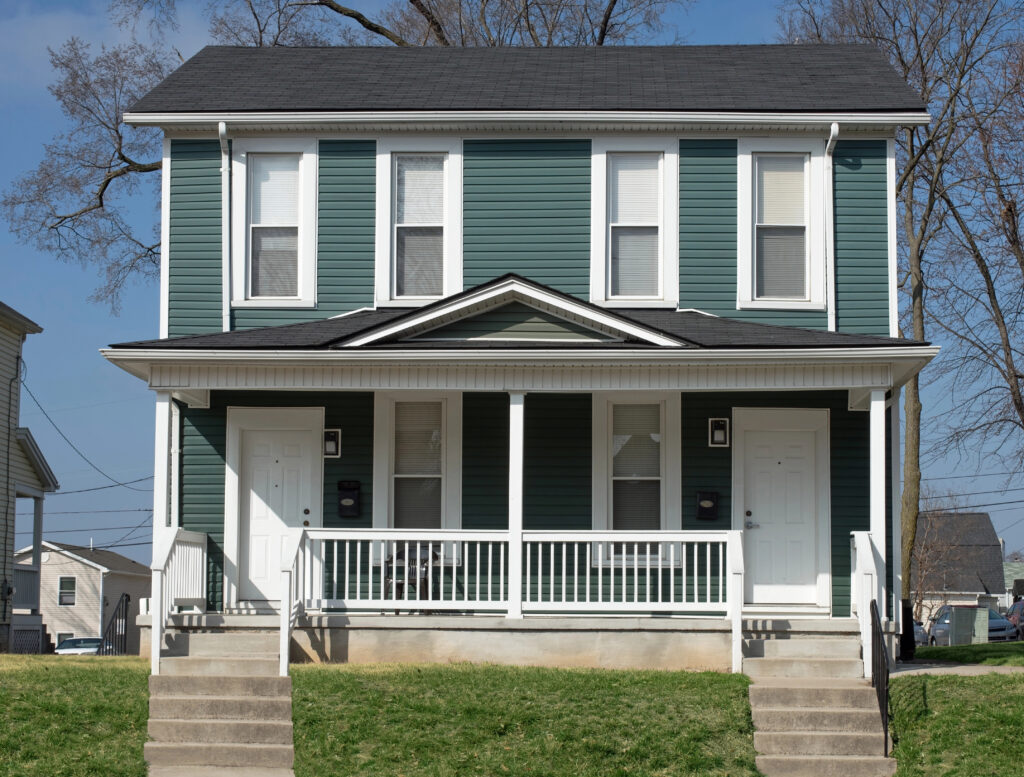Purchasing both sides of a duplex can be an excellent strategy for Canadians looking to enter the real estate market while building long-term wealth. This approach offers unique opportunities, including generating rental income, taking advantage of favourable financing terms, and mitigating risk. However, it requires careful planning, financial preparation, and an understanding of local markets and regulations.
Benefits of Buying Both Sides of a Duplex
Owning both units in a duplex provides a unique level of control and flexibility that is difficult to achieve in other real estate setups. This can simplify property management and other aspects of property investment, especially for first-time landlords.
Entry-Level Investment Opportunity
Buying both sides of a duplex combines homeownership with the potential for earning passive income and property appreciation of both units. This can be an accessible way to build equity and establish a real estate portfolio.
Autonomy
Unlike in situations where one side of the duplex belongs to a separate owner, you are not at the mercy of a third-party neighbour’s decisions or wishes.
Owning both sides of a duplex gives you control over major improvements and repairs, like roofing, siding, or structural updates, that would typically require collaboration with the owner of the second unit. This collaboration can often create challenges. Deciding on shared expenses, such as roof repairs, exterior painting, or driveway resurfacing, often requires negotiation, compromises, and, at times, disputes. However, owning both sides eliminates this complexity.
This eliminates potential delays or conflicts over timing, budgets, or the scope of work and avoids the risk of being pressured into updates you may not prioritize.
While landlords must meet minimum legal standards for rental units, owning both sides still offers greater autonomy in managing your property. This makes duplex ownership a unique option—allowing you to enjoy affordable housing without some of the complications common when two or more owners share a wall.
Choosing Your Neighbours
When you own both sides of the duplex, you have the distinct advantage of greater control over who lives next door. If you’re living in one unit and renting out the other, you get to screen potential tenants to find reliable ones that will not damage the property and detract from your value.
Simplified Landlord Responsibilities
For first-time landlords, owning and living in one unit of the duplex can make the landlord role more manageable. When you’re on-site, daily tasks like maintaining the yard, clearing snow, or inspecting the property become more convenient. For example, mowing the lawn for both units at the same time reduces the time and effort compared to managing a property in a separate location.
Being physically present also makes it easier to monitor the other property, without being invasive, and allows you to respond more quickly to any issues.
Financing and Tax Benefits
Buying both sides of a duplex can offer potential financial benefits, especially if you live in one unit. Owner-occupied properties often qualify for lower down payments and favourable mortgage terms, allowing lower down payments than non-owner-occupied properties. Rental income from the second unit is taxable but allows for deductions like maintenance costs, utilities, and loan interest, which can help offset expenses.
Challenges and Considerations
As with any investment, there are risks. Purchasing the second unit as a rental property exposes you to risks, including market volatility, vacancies, tenant damages, and others. There are also several factors to consider, so you are well prepared.
Financial Readiness
While duplexes can offer financial relief, there remains the higher initial cost of buying both units, instead of just the one required for living.
Property Management
Managing rental units adds responsibilities. Landlords must maintain the property, handle tenant issues, and ensure regulatory compliance under provincial tenancy laws.
Zoning and Municipal Regulations
Certain municipalities may impose restrictions on duplexes, such as occupancy limits, additional parking requirements, or regulations about short-term rentals like Airbnb. Buyers must ensure the property complies with local bylaws.
Local Market Conditions
Location is critical when purchasing a duplex. In urban centres such as Toronto, Vancouver, or Montreal, demand for rental housing is strong, but purchase prices are higher. Smaller cities like Kingston or Guelph offer lower entry costs, as well as consistent rental demand, making them appealing to first-time investors.
Mortgage Pre-Approval and Budgeting
Determine how much mortgage you qualify for and the associated costs. Canadian lenders often consider potential rental income when calculating mortgage eligibility, but each institution has different criteria.
Tenant Screening and Agreements
While being next door may encourage tenants to be responsible and careful with the property, you still need to carefully vet potential tenants. You want to find ones that are likely to be reliable in paying rent and not causing unnecessary damages and wear and tear on your property. Use written leases that clarify responsibilities up front, and which adhere to provincial landlord-tenant regulations to avoid legal issues.
Property Condition and Inspection
Older and poorly maintained duplexes are likely to create higher maintenance costs for you. Investing in a thorough home inspection can identify potential structural or mechanical issues, helping to avoid expensive surprises.
A Unique Path to Homeownership and Landlord Success
By owning both sides of a duplex, you not only gain full control over your property and immediate neighbours but also make the transition into being a landlord significantly easier. On-site living allows for hands-on management, efficient upkeep, and smoother operations while reducing the uncertainties often associated with working with independent neighbours or tenants. This approach is particularly well-suited for first-time buyers looking to balance homeownership with the financial benefits of real estate investment.



